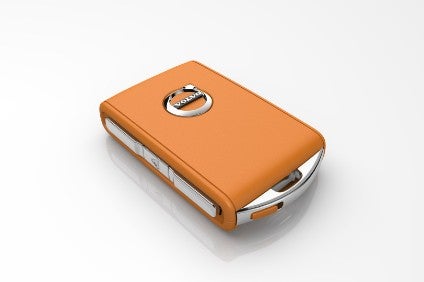
Geely's Volvo Cars has launched the Care Key, allowing any buyer to set a speed limit for themselves or other drivers.
The key will be standard from model year 2021.

Discover B2B Marketing That Performs
Combine business intelligence and editorial excellence to reach engaged professionals across 36 leading media platforms.
The Care Key – similar to that offered by some automakers in the US for some years – allows drivers to limit the car's top speed, before lending their car to other family members or to younger and inexperienced drivers.
The launch of the key followed the earlier announcement Volvo would limit the top speed on all its cars to 180 km/h from 2020, in order to send a strong signal about the dangers of speeding.
Hakan Samuelsson, Volvo Cars' chief executive, said this month the company wants to start a conversation about whether car makers have the right or maybe even the obligation to install technology in cars that changes their owners' behaviour.
"We believe a car maker has a responsibility to help improve traffic safety," said Samuelsson. "Our recently announced speed limit fits that thinking and the Care Key is another example. Many want to be able to share their car with friends and family but are unsure about how to make sure they are safe on the road. The Care Key provides one good solution and extra peace of mind."
Beyond the potential safety benefits, features like a speed limit and the Care Key are also likely to offer Volvo drivers a financial benefit. The company is currently inviting insurance companies in several markets to conversations to offer special, favourable insurance to owners using these safety features.
Volvo Cars expects to announce the first of several agreements with national insurance firms soon.
"If we can encourage and support better behaviour with technology that helps drivers to stay out of trouble, that should logically also have a positive impact on insurance premiums," said Samuelsson.






